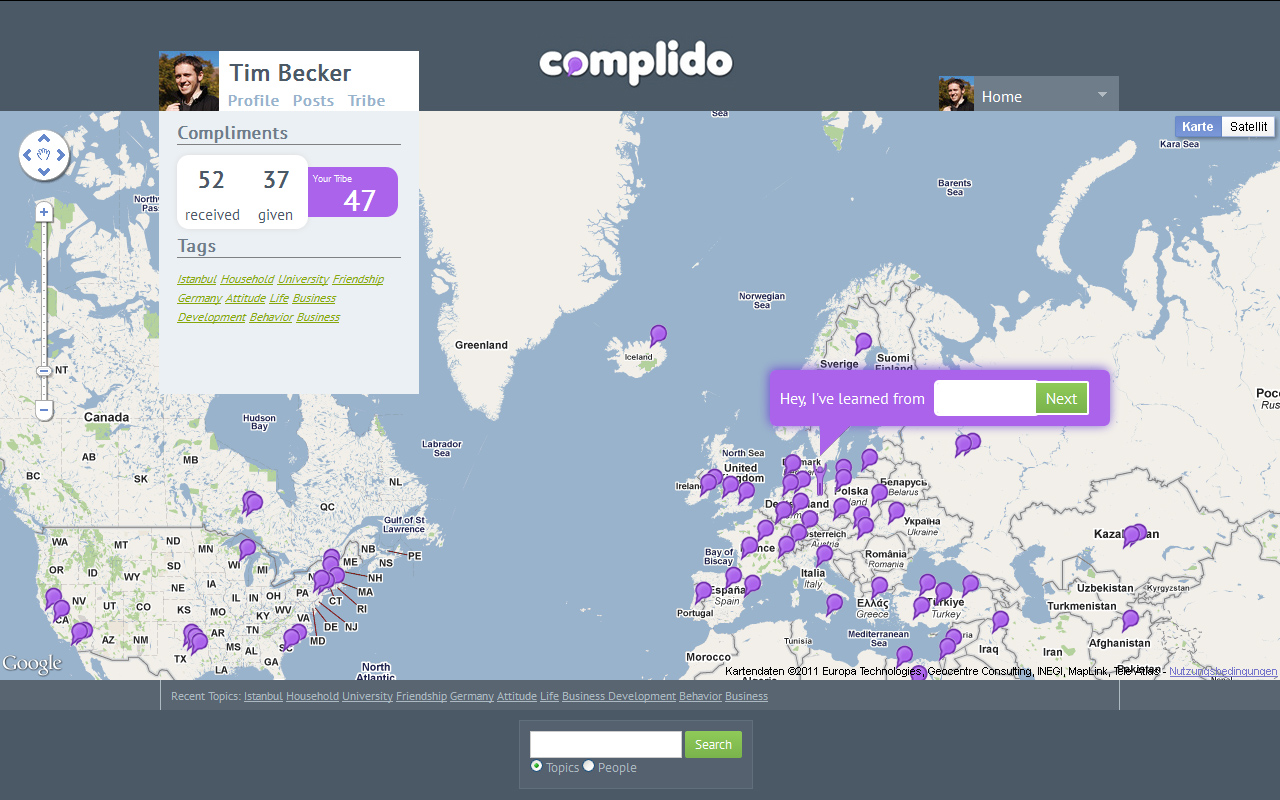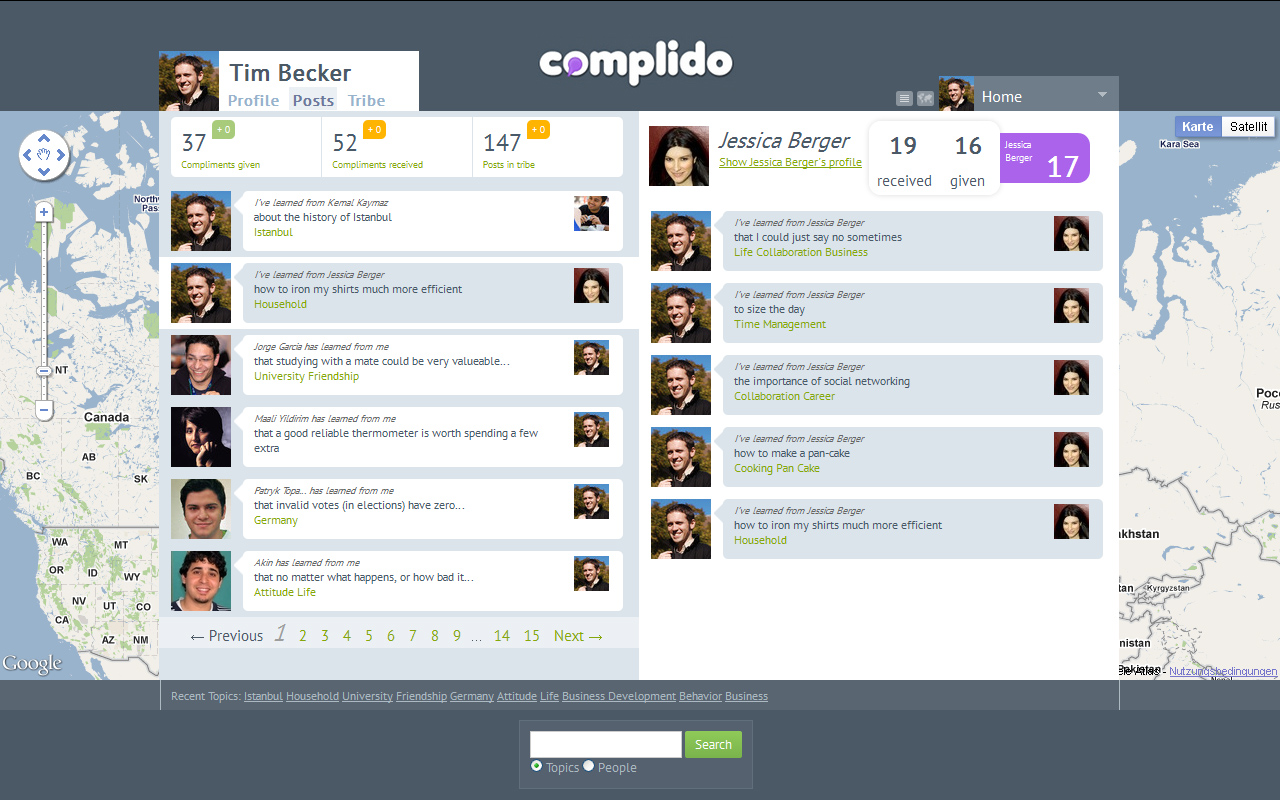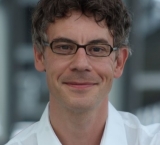Hack:
I’ve Learned from You: The Power of Appreciative Knowledge Networks!
In brief: the “knowledge sharing disease”!
When we were growing up, most of us discovered the world surrounded by adventurous friends and the wisdom of our grandparents. I personally never questioned how we learn. It was the most natural thing to learn from the people around me. Later in school and university things changed. Acquiring knowledge became a duty and factual knowledge was king. Then, when I faced the business world, knowledge became a competitive advantage and collecting it, being ahead of others, appeared to be the championship everyone is interested in.
But wait! Could we please stop for a moment! What has actually changed? We still learn from people around us! It’s just that there are more people around, because connectedness has increased a lot. And yes, it’s now about competition. But wasn't this also the case when we were challenging each other on the playground? Of course it was! And at these days it was also about togetherness and solidarity. We all enjoyed a well-balanced dance between competition and collaboration - a natural sense of rhythm which seems to be lost at the majority of today’s enterprises.
In brief: openly appreciating the people we have learned from!
Maybe a naive vision, but why don't we give it a try: let us apply the principles and tools of Web 2.0 to rediscover appreciation, to foster a more natural approach of competition and collaboration that will bring us back into balance. Let us create appreciative networks! Networks that are based on the fundamentals that we make a compliment to the people we have learned from. Networks that are avoiding major mistakes of management, since they
- do not try to extract knowledge from people
- do not rely on codified knowledge
- do not aim at unification
Following these considerations, we have created a tool to test the idea and visualize the flow of knowledge as it has been valued by the community (see the video below). The exciting question: will people shift their focus from promoting their expertise to openly appreciating the people who have crossed their way when developing this expertise – and how can we enable this? The answer: hope for idealism and altruism but accept the prevalence of self-interest and use the power of each employee’s personal goals.
Our simple but (hopefully) powerful idea: create knowledge relationships by plainly stating “I have learned from you!” With respect to social software, the novel aspect is that this networking process is initiated from the knowledge receiver’s side. Contrary to other professional networks, we want to encourage people highlighting their “Haves” by identifying and mentioning the original source of knowledge. This sounds like a tiny difference but it makes a tremendous change (as far as we can see)!
In brief: improved collaboration (with all its benefits)!
Creating appreciative networks will support the above mentioned moonshots. Essentially, the outlined idea will have the following impacts:
- By appreciating what we learn from others, we take time to reflect. We will increase trust and reduce fear and thus build resilient relationships. These personal relationships make our “knowledge tribe”, our individual network which can help us in many (business) situations. From a corporate perspective, the sum of individual, highly interrelated networks will go beyond organizational boundaries and consequently help disaggregating the organization, making it a more flexible and scalable system.
- By getting appreciation for what others have learned from us, we can hope for an infusion of positive energy and knowledge sharing will become what it deserves to be.
- By highlighting the people rather than extracting their knowledge, we move towards a more human organization. This kind of organization is built on individuals who are allowed to make a difference and who are not immediately replaceable. For some enterprises this would mean a big shift of paradigms, since they rather believe in roles and types than in persons and instances.
In greater detail, we can summarize the following practical impacts
On an individual level:
- Get a compliment from the (virtual) community
- Build rewarding relationships with others by making a compliment
- Become an acknowledged expert on certain topics (even if you are not showcasing yourself)
- Manage your own network (people you have learned from / who have learned from you)
- Explore the “knowledge tribes” of other people and find out from whom they have learned
- For specific questions / topics: find knowledge owners who are geographically close to you
- Take a journey through time and space and play back how your knowledge and networks have developed
On an organizational level:
- Identify hidden champions (the “silent” employees)
- Innovate by using the creative dynamics of complex networks
- Highlight the best knowledge sharers (instead of the “formally best experts”)
- Take a look behind the org chart and identify corporate relationships between single employees that actually work (e.g. for staffing a project or similar)
- Find out how knowledge is valued and distributed in your organization
- Use the above listed information to implement holistic performance measuring, accepting flexible hierarchies and capabilities of people we could not see before
In brief: start experimenting!
The good thing is that you can start with it right away. You, in your organization, now! And that’s the process, which we would like to invite you to:
- Think about a person from whom you have learned something. This could be anything but it must be a somehow important lesson.
- Make an honest compliment to this person.
- Envision developing your individual network of appreciation. Reflect what you have learned and the persons who helped you. Understand this development as a journey.
- Make more compliments. Let’s see when you get your first pleasant replies.
- Once you positively experience compliments, share the idea. Invite other people to join the journey and help creating more interrelated individual networks.
- Analyze the quality and diversity of your network. What are the people you learn most and best from? How deep and broad is the knowledge you share, how many professions and cultures are involved? In which direction would you like to expand?
- Aim and hope for the momentum of enabling a community of passion.
- Meet us and join your fellow networkers for experience exchange. We are planning two events in Brussels and Berlin in the beginning of 2012. We are expecting a few hundred participants and would love to bring local and international communities together.
- Use our software tool “Complido” (will be available in Q4 2011) to visualize and manage your networking. Let us know how we can improve the software to support your endeavor.
- If you like to test Complido on an enterprise-wide scale, let us know. We are looking for more organizations which are willing to experiment and open for emergent processes.
To Dee, Dave, Gary, Lynda, Otto, Peter, Tom, Umair, Christian and many more who inspired us on our learning journey. The travelers are Frank, Karen, Jörg, and Johannes accompanied by dear friends and partners! Very special thanks to Johannes; without last year’s BBQ and your persistent passion Complido would never exist!


Frank,
What a great idea! Simple but very powerful. Good luck!
Best,
Lorne Mitchell
- Log in to post comments
Thank you very much for the encouragement! Hope the software will go live these days ... further news at www.blog-complido.com. Would love to hear your opinon!
Best regards,
Frank
- Log in to post comments
Frank,
You've taken the concept of public thanks/feedback to a macro, networked scale with the specific appreciative tone for having learned something. It's a great evolution of a simple concept.
I agree with you, there is certainly potential for positive behavioural norms to form and many opportunities for self-reflection and introspection.
However, I would like to pose a question to inspire deliberation.
As the provider, how will you help clients to realize the full potential of the system? In other words, how do you prevent sub-optimal usage/encourage optimal usage?
E.g., Prevention: How do you prevent insincere or unproductive use?
E.g., Encouragement: How do you facilitate self reflection or self-awareness?
(I understand the message of hope, but I'm wondering if a more systematic strategy exists)
Or do you position yourself to say, we provide the opportunity - it's up to you to make the most of it?
- Log in to post comments
Sean,
Sorry for the late response, have been on holiday. With your questions you are touching a very important point. Indeed, we already had a couple of internal discussions in this context, when we were developing the system.
Basically, we came to two answers:
Firstly, it is our understanding of social software that it is just as good as the society which is using it. Since social software provides some nice “features” like “making things transparent”, it certainly has the potential to enable good or better organizational behavior. But a technical system cannot – and to our understanding even shall not – suppress insincere or unproductive use. This is something the people must agree among themselves. Consequence: an organization already needs a certain level of openness and maturity to start with our idea.
Secondly, we provide management consultancy to facilitate organizational change. Besides the “soft” arguments of improving collaboration and knowledge exchange there are a number of “hard facts” we can outline, if an organization is willing to change their management paradigms towards less control and more informal communication (beyond the org chart). Our consulting approach is to co-create an individual vision with each of our corporate customers. As well as an individual approach of how to reach it best.
Kind regards, Frank
- Log in to post comments
This is right on target, and the real goal of social computing. Its about building the knowledge base by expressing genuine gratitude. It fits with the theories of Daniel Pink in that its about recognizing mastery and building on autonomy. It is in line with the read write economy theories introduced by Larry Lessig, and builds on acknowledging the wisdom of crowds. I expect it to go viral easily and quickly.
- Log in to post comments
Roger,
Thx for making the links to Daniel Pink and Larry Lessig. Calling management my home turf, I am certainly tempted to touch the exciting stuff which grows in neighboring gardens, such as motivational theory and intellectual property rights. However, I guess I will always remain an amateur in those areas and therefore try to concentrate on what I really know. Even more glad, that you feel our thoughts fit into the big picture.
Best regards,
Frank
- Log in to post comments
This is simple and effective - and I can start using it no pretty much given linkedin and such tools. Well done
- Log in to post comments
- Log in to post comments
HI Frank!
I think "Complido" could greatly assist organizations in two main fields:
-In the recognition of competences of people, not through traditional assessment of professional achievement, but through the identification of sources of knowledge and motivational value that this knowledge generates.
-In the identification of touch points in the process of transferring tacit knowledge that has been very difficult to identify within organizations.
At the individual level I think that will bring a new level of reflection about the origin and value of knowledge that we own. "Complido" makes us think about the context and this is extremely important to assign meaning to what we projected.
I think "Complido" will add much value to people and toorganizations!
Jose
- Log in to post comments
I am very glad, you like it :)
And I totally agree to your point, that context/situations in which we gained our knowledge are extremely important. Principally, whenever we learn something, we talk about the triangle of US, OTHERS and the ENVIRONMENT (time, place, etc.). Wth Complido, we start with the OTHERS ... hoping to find a smart way of linking to the ENVIRONMENT. Keeping it smart and simple (i.e. avoiding the German engineering approach ;)) will certainly be the biggest challenge in this regard. Already got some crude ideas, though.
- Log in to post comments
After reading the idea for a first time I had to take my bike for a ride and think about it: could this idea work? And I'd like to share my thoughts:
So what in fact makes learning (from others or from situations) so great and valuable? What are the building blocks for "successful" learning? From my point of view there are at least three things to consider about:
1) One have to be open minded - this is absolutely a must - otherwise one will not learn (new) things.
2) You have to have an environment which is fault tolerant - you cannot learn without making mistakes.
3) You need people who influence you (to use Social Media wording) by their behaviour, experience, wisdom or their passion...
To come to an end: Complido combines all these points by bringing people willing to learn together, by providing an environment for them and by keeping worthful people in touch.
So there is just one question open: where can I sign in?
- Log in to post comments
- Log in to post comments
When I think about from whom I learned most in my life there is a knowledge network in my head created by people who joined my live for a while or longer, in private life and business. Complido is a wonderful possibility to let all these people know what I learned from them and what I like them for. Great idea! Hack it on!
- Log in to post comments
Maybe the "knowledge network in my head created by people" is the true social network!? And the appreciation (read: value) certainly is for WHAT we've learned from others, but also if not more, for HOW we've learned from them. If Complido could catch that... - @cdn
- Log in to post comments
- Log in to post comments
Innovative and appropriate - most people's experience of the web is a very appreciate one, and it makes sense to translate this into organisations.
- Log in to post comments
- Log in to post comments
- Log in to post comments
We all love to learn. It’s a key motivation for much of what we do, actually. When we lose the opportunity to learn on a job/project, we start to look for something else… And we all love recognition. That’s another key motivation for much of what we do, really. Social media are testimony to that. So if well implemented, "Complido" is going to be a big win! - @cdn
- Log in to post comments
- Log in to post comments












You need to register in order to submit a comment.